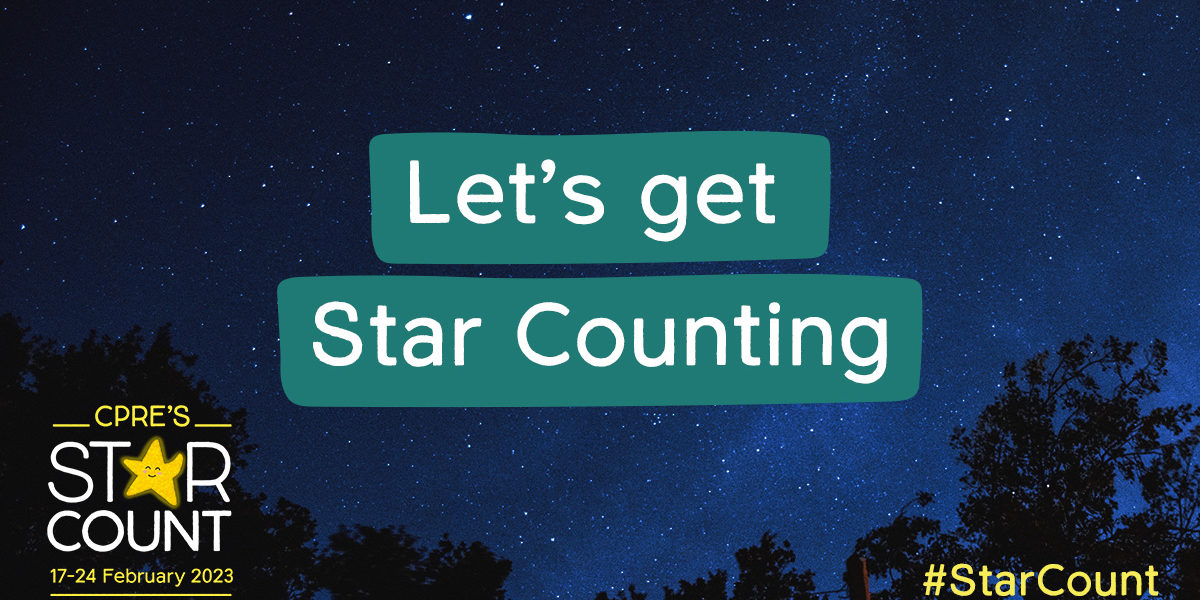CPRE’s Star Count 17-24 February 2023

19th January 2023
Dark starry skies are a beautiful sight, and a distinctive feature of the countryside. But too often, light pollution means that many of us can’t see the stars. To celebrate our starry skies and to help to protect and improve our view of the stars we are inviting the nation to be ‘citizen scientists’ and take part in Star Count 2023 – a cosmic census that will help map our view of the stars and the impact of light pollution across the country.
Light pollution impacts our experience of the natural wonder of the night sky, blurs the distinction between town and countryside, and disrupts wildlife. In our 2022 count, 49% of participants counted 10 stars or fewer in the constellation of Orion, indicating severe light pollution while only 3% experienced truly dark skies. Dark skies are also important for the health and wellbeing of people and animals. Too much artificial light can impact our sleep, disrupt nature’s natural cycles and confuse wildlife. Together, we can work towards rewilding our skies for the benefit of people and wildlife.
Help rewild the night by taking part in Star Count
Stargazers will be asked to count the number of stars they can see, with the naked eye, the constellation of Orion, and submit their count on the CPRE website.
You don’t need a telescope or any equipment to take part. The number of stars visible within the constellation of Orion is a good indicator of the amount of light pollution affecting views of the night sky, and can be compared with previous years’ data to show how our ability to see the stars is changing. We’ll also use the data to produce an interactive map of the nation’s view of the stars.
Star Count will take place during the darkest skies from Friday 17 – Friday 24 February, inclusive.
Star Count is supported by the British Astronomical Association’s Commission for Dark Skies.
